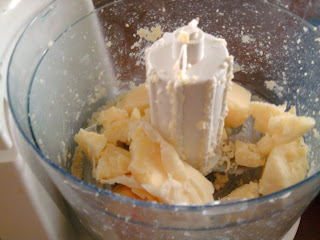When you are homesteading what happens inside the house is just as important as what happens outside. After all what's the point of all this produce if you are not going to utilize it.
A big part of detaching yourself from consumerist society is preserving food. You know the way you can head down to the supermarket and buy stuff whenever you like, even if its out of season where you live? Thats a very unnatural thing, and it can't be managed without moving food vast distances or changing it so it doesn't go off (gassing fruit etc). In all of civilisations history prior to the last sixty years or so people have had to know to preserve food, and it makes sense to me that we reacquaint ourselves with it now. We have only just scratched the surface of it so far, but the highlight this Autumn was making our first ever batch of Tomato sauce.
Of course some produce will last quite a while if you pick it at the right time. There are pumpkins, spaghetti squash and watermelons everywhere! Mountains of em!!!
Another new adventure has been soap making. We have made two batches using oil bought at the shops, which makes lovely soap, but works out to cost about the same as a high quality soap you might buy. Great for avoiding some of the nasty chemicals used in commercial soap, but as a general rule I aim to decrease spending as well. One theory I have is that when it doesn't work out cheaper it is because you haven't managed to implement an entire system yet, part of designing from patterns to detail ( a Permaculture principle) is that different systems on the farm should interact and support each other. That is where Tallow comes in.
We recently split a home slaughter with a neighbour, we were only getting two lambs taken care of, but our neighbours were getting a steer done. That meant a lot of fat. A whole wheelbarrow full. Bright yellow fat. Everyone I know who is raising their own meat is keen to see as much of it put to use as possible, its an obligation you feel after all that work you put into raising the animal, and yet another example of why it's healthy for people to get close to their food supply. So rather than see any waste our neighbours were more than happy for us to take a few bags of fat home to make tallow from.
It's a messy business, but after melting the fat in a slow cooker and then straining it you are left with a clear clean liquid that will then set into a solid block. This tallow can be used instead of oil in the soap recipe, which suddenly makes the soap a lot cheaper to make.
Things are slowly starting to come together on the self sufficiency front. We are shopping less and less. It feels good to start skipping shopping days, and makes for more time on the farm.















4 comments:
I'm up to design from patterns to details in July, and make a very good point about looking for more interactions if you're saving money yet! You soap looks great too. It will be interesting to see how those pumpkins last through winter, you'd think it would be cool enough if you leave them outside....
argh meant to say that YOU make a good point
Do you see animals differently now?
Yes I guess, I've been thinking a lot about the efficiencies of the different animals. At times I've thought we would get rid of the sheep (after they didn't really work out as companion animals for Archie), but I have been amazed how efficient they were at turning grass into meat. Unlike many other farm animals you hardly have to supplement their feed at all. They create almost all of that absolutely delicious meat just out of grass and water. Cows and goats need more hay, grain and minerals (but you can get milk as a bonus), then pigs and chickens require a lot of grain (usually). I was just reading how in pre industrial times pig and chicken were considered the meat of royalty because there was so much effort in farming grain before tractors that to then feed it to livestock was considered incredibly extravagant. Grain was also far more expensive then, imagine that, bread being more expensive than beef and lamb. But if you take fossil fuels and topsoil destroying monocrops out of the equation (which will happen eventually) its is actually the natural way of things.
So I guess the animals have become more objectified in my mind in one way. But it comes hand in hand with a respect on a whole new level. These animals, billions of them over thousands of years, created the context that makes our lives possible. The air, the soil, the fresh water are all here because of their relentless devotion to grass and their resulting relationship with predators and the soil. What a joy it is to be playing a part in this incredible pattern. I literally break out into giggles from time to time when I reflect on the path my life is on.
We ate our first lamb the other night and it wasn't like I expected at all. Remember I was once a vegetarian, I expected it to be a somber and emotional experience. However I must admit to a certain amount of pride, the mood between Vicki and I was more like a celebration. Every creature involved in bringing that food to our plate, from the bacteria in the soil, to the grass growing out of it, to the lamb, and then the top level predator (us) had played their part as nature had intended, and as is actually necessary to sustain life as we know it into the future. What greater cause for celebration can there possibly be :)
Post a Comment